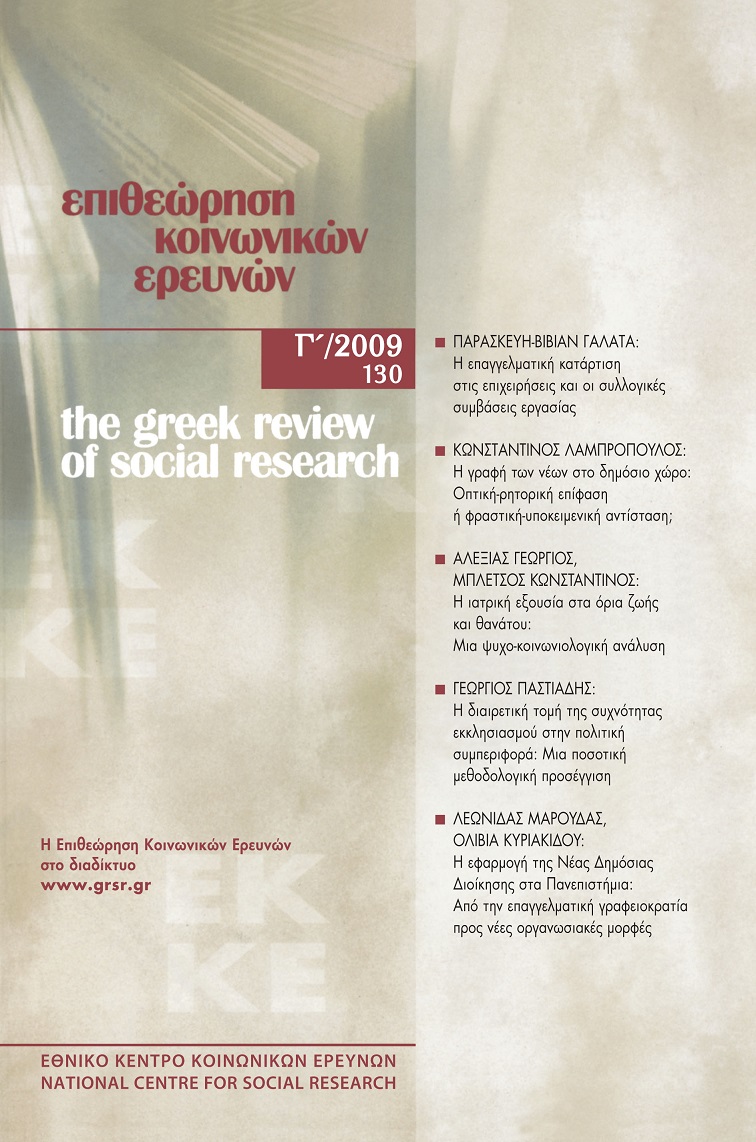Political changeover: «Greek» culture and education

Abstract
Historically, the modern Greek community expressed itself in a polarised manner: serving emotionally impregnated ideas. The period after the fall of the colonels’ regime in 1974 followed the same historical path. By shifting the polarisation onto the field of the defence of people’s interests it led to the reconstruction of a flawed and contradictory collective ideal. However, the continuation of the same collective attitude discloses deeper cultural causes and obsessions. More specifically this attitude has been reflected in the area of education. The Greek educational system has remained divided between the self-referential and dogmatic teaching of the Greek consciousness on one hand and the teaching of an exogenous modern spirit as far as technology and economic life are concerned on the other.
Article Details
- How to Cite
-
Λαμπρόπουλος Κ. (2013). Political changeover: «Greek» culture and education. The Greek Review of Social Research, 139, 95–128. https://doi.org/10.12681/grsr.77
- Issue
- 2013: 139, A
- Section
- Articles

This work is licensed under a Creative Commons Attribution-NonCommercial 4.0 International License.
Authors who publish with this journal agree to the following terms:
- Authors retain copyright and grant the journal right of first publication with the work simultaneously licensed under a Creative Commons Attribution Non-Commercial License that allows others to share the work with an acknowledgement of the work's authorship and initial publication in this journal.
- Authors are able to enter into separate, additional contractual arrangements for the non-exclusive distribution of the journal's published version of the work (e.g. post it to an institutional repository or publish it in a book), with an acknowledgement of its initial publication in this journal.
- Authors are permitted and encouraged to post their work online (preferably in institutional repositories or on their website) prior to and during the submission process, as it can lead to productive exchanges, as well as earlier and greater citation of published work (See The Effect of Open Access).



